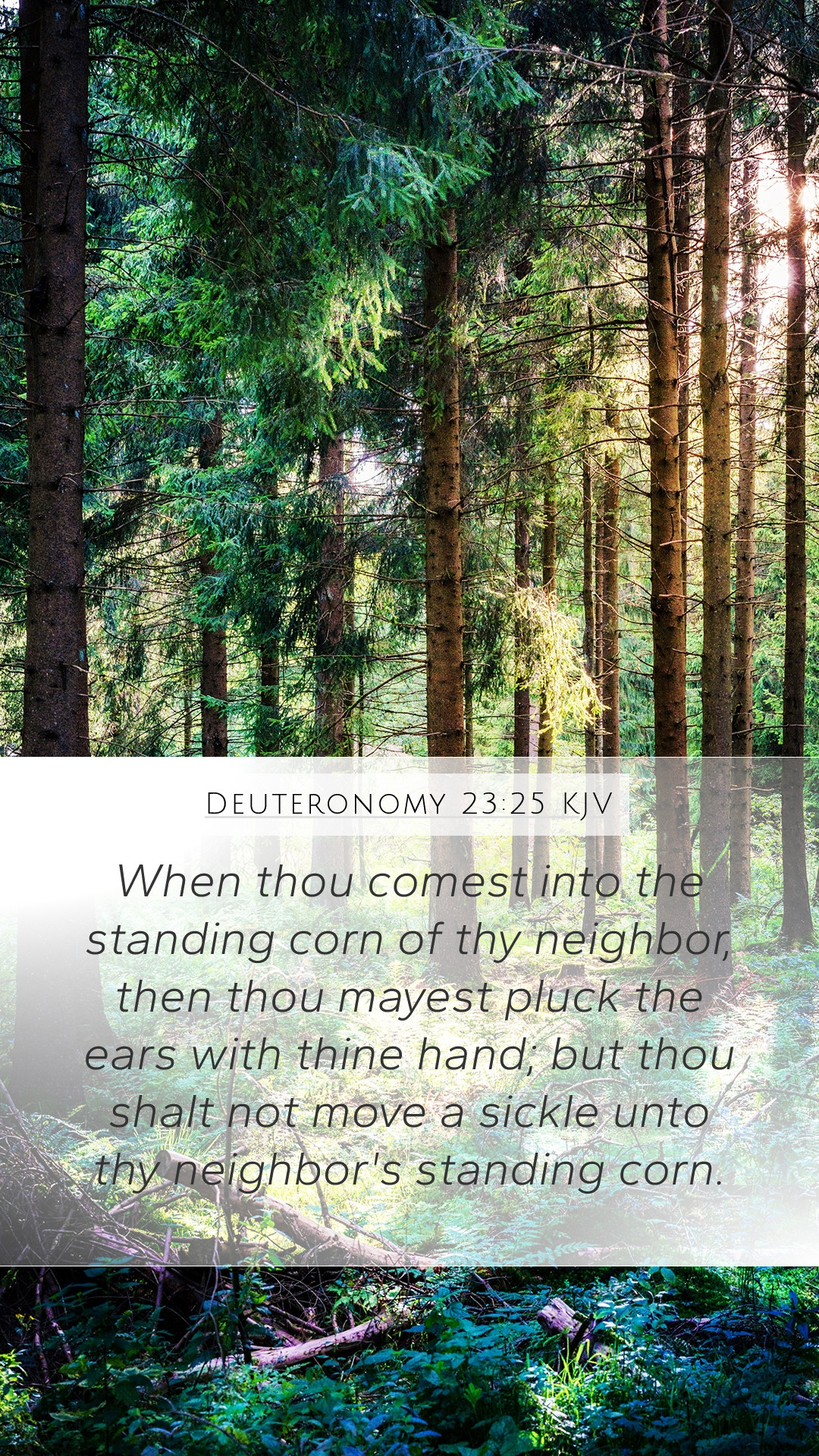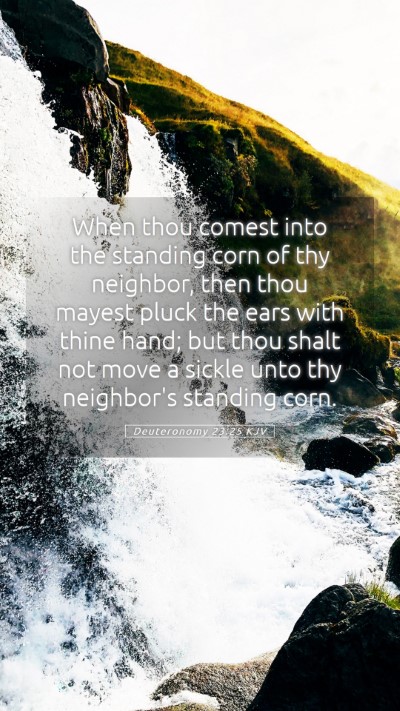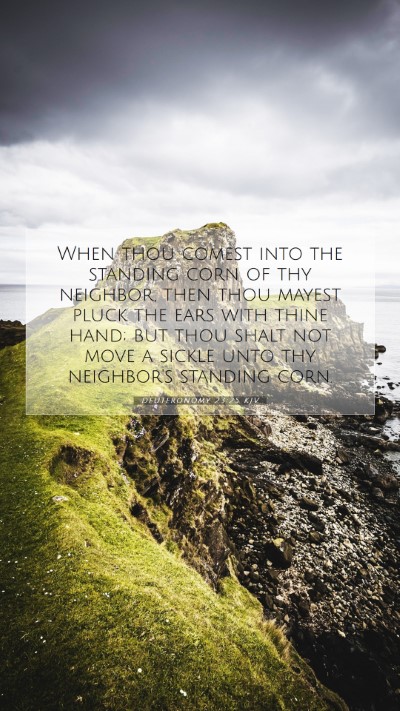Understanding Deuteronomy 23:25: Commentary and Interpretation
Verse in Question: Deuteronomy 23:25 states, "When you go into your neighbor's vineyard, you may eat your fill of grapes, as many as you wish, but you shall not put any in your basket."
Bible Verse Understanding
This verse comes from a broader context of laws intended to govern social conduct and ensure fairness among the Israelites. The commandment reflects not only the provision of God for the necessities of life but also the importance of respect for private property.
Meaning of Bible Verses
According to the commentaries of Matthew Henry, Albert Barnes, and Adam Clarke, this verse emphasizes the balance between enjoying the blessings of others while avoiding exploitation. When a person is in need, it is permissible for them to partake in what is available without taking from them.
Key Insights from Commentaries
-
Matthew Henry: He emphasizes the spirit of generosity and the communal nature of sustenance. The verse teaches that while the law permits eating from one's neighbor's vineyard, it is a privilege rather than a right. The action should be done out of courtesy and the underlying acknowledgment of ownership.
-
Albert Barnes: Barnes points out that this law is meant to prevent covetousness. By permitting only the enjoyment of the fruit of the vineyard on-site, it encourages a sense of community while safeguarding the vineyard owner's property rights. This reflects the value placed on neighborly relations.
-
Adam Clarke: Clarke elaborates on the principle of personal need versus property rights, interpreting this verse as a manifestation of God's concern for the well-being of His people. He suggests that while God provides, this provision comes with the responsibility of respecting state boundaries.
Bible Verse Explanations
Deuteronomy 23:25 serves to illustrate a fundamental biblical principle of care and respect for others’ possessions, weaving a narrative of social ethics into the fabric of daily living. The verse highlights God's desire for His people to live harmoniously, reflecting a theology of abundance while interlacing it with a hallmark of responsibility.
Application of Bible Verse to Daily Life
In the context of today's society, this passage encourages individuals to find a balance in their enjoyment of resources while maintaining respect for others' contributions to those resources. This can translate into modern scenarios of borrowing, using, or sharing the resources of friends and family with a mindset of gratitude and respect.
In-depth Bible Verse Analysis
Understanding the cultural and economic backdrop during the time this command was given aids in interpreting its relevance today. Israelites lived in agrarian societies, where fields and vineyards represented livelihood. The economy relied on generosity within tribes, yet with established boundaries to prevent egregious behavior.
Historical Context of Bible Verses
The instruction derives from the idea of a covenant community where provisions were both divine and communal. The laws served as a code for living uprightly amidst rivalries and resource scarcity, advocating for a shared experience without infringing on one's possessions.
Cross References
- Exodus 23:11: Emphasizes allowing the poor to eat from the fields while prohibiting harvest gathering.
- Leviticus 19:9-10: Commands not to glean the edges of one’s field but to leave them for the poor and the stranger.
- Matthew 12:1-8: Jesus refers to the act of eating grain on the Sabbath, teaching about the needs of humanity over rigid observance of laws.
Conclusion
In summary, Deuteronomy 23:25 provides a robust teaching on the respect of boundaries in the enjoyment of God’s provisions. It inspires a cooperative spirit grounded in faith. By respecting each other's rights, we cultivate an environment reflective of divine charity, which is essential to understanding Scripture and illuminating Bible study insights into Christian ethics.


